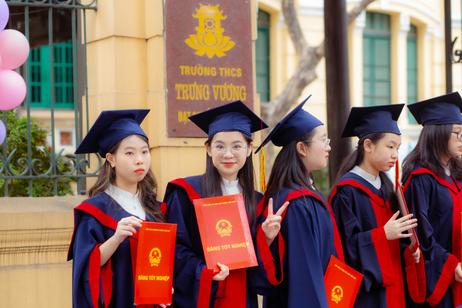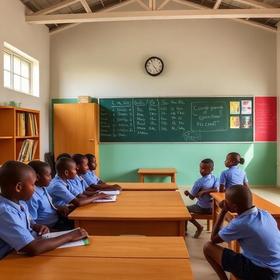What’s Being Taught? Academic Programs in Private Schools
When families explore private school options, one of the first questions they ask is simple but essential: What will my child actually learn? The academic programs in private schools are a major reason parents choose independent education over public alternatives.
Private schools are known for smaller classes, dedicated faculty, and enriched curricula that go beyond state-mandated standards. In 2025, these schools are expanding offerings to prepare students not just for college but also for a rapidly changing global economy.
This article breaks down what’s being taught, with a closer look at current trends, examples from leading schools, and insights into how academic programs in private schools evolve to meet modern needs.
Core Academic Foundations English and Humanities
Most private schools emphasize English Language Arts, with literature, writing, and critical analysis forming the backbone of the curriculum. Students often study a diverse range of authors, from Shakespeare to contemporary global writers, reflecting an emphasis on both tradition and inclusivity.
History and social studies courses are equally robust, often including civics, global history, and interdisciplinary “humanities” programs that integrate art, literature, and philosophy.
Mathematics and Sciences
The math curriculum in private schools usually extends beyond Algebra, Geometry, and Calculus, with many schools offering:
Statistics
Applied math for economics and business
Computer science courses
Science programs often feature state-of-the-art labs and emphasize inquiry-based learning. In addition to biology, chemistry, and physics, schools increasingly offer electives such as environmental science, neuroscience, and biotechnology.
Advanced and Specialized Academic Programs
Private schools pride themselves on offering advanced academic programs that rival or exceed public school offerings.
AP and IB Programs
Many schools provide Advanced Placement (AP) courses, enabling students to earn college credit.
Others adopt the International Baccalaureate (IB) curriculum, known for its global perspective and interdisciplinary rigor.
In 2025, an increasing number of schools blend AP and IB courses with their own signature honors programs.
Signature Programs and Concentrations
Some private schools create specialized tracks in areas like:
Engineering and robotics
Entrepreneurship and business leadership
Global studies and diplomacy
Visual and performing arts
These programs allow students to pursue passions deeply while maintaining a well-rounded foundation.
Global Education and Languages
In an interconnected world, global education has become central to academic programs in private schools.
Foreign language instruction often starts in early grades, with offerings that go beyond Spanish and French to include Mandarin, Arabic, or Latin.
Many schools emphasize study abroad programs, cultural exchanges, and international service learning.
Courses in global issues, sustainability, and international relations prepare students for cross-cultural competence.
Technology and AI in the Curriculum
In 2025, private schools are leaders in incorporating technology and AI in education. Students use digital tools not just for research but for collaboration, innovation, and problem-solving.
Academic programs increasingly include:
AI literacy courses, teaching students how artificial intelligence works and its ethical implications.
Coding and computer science integrated across grade levels.
Media literacy to help students critically evaluate information.
This reflects a broader trend of preparing students for future careers in technology-driven industries.
Arts, Athletics, and Enrichment
Private schools emphasize that academics extend beyond core subjects.
Arts Education
Music ensembles, theater productions, and visual arts courses are standard.
Many schools offer advanced studio programs, film production, and digital design.
Athletics and Wellness
Comprehensive sports programs encourage fitness and teamwork.
Health and wellness education—including mental health support—is integrated into daily life.
Experiential Learning
Fieldwork, internships, and project-based learning help connect classroom knowledge to real-world applications.
Comparing Academic Programs in Private vs. Public Schools
| Area | Private Schools | Public Schools |
|---|---|---|
| Class Sizes | Smaller, more individualized instruction | Larger, vary by district |
| Advanced Programs | AP, IB, unique signature tracks | Primarily AP/IB if available |
| Global Focus | Early foreign language, cultural exchanges | Limited by budget/state priorities |
| Technology Use | AI literacy, coding, innovation labs | Growing but uneven access |
For families weighing choices, see Private vs. Public Schools: Key Differences.
Expert Commentary
Dr. Amina Patel, Director of Curriculum Innovation at a leading independent school, notes:
“The most successful academic programs in private schools combine rigor with relevance. Parents should look for schools that not only prepare students for college but also equip them with the critical thinking and adaptability needed in an AI-driven world.”
2025 Trends in Academic Programs in Private Schools
Interdisciplinary Learning: Courses that blend science, technology, arts, and humanities.
Sustainability Education: Climate studies and environmental science integrated across grade levels.
Entrepreneurial Thinking: Business incubators and design-thinking courses.
Wellness and Balance: Schools emphasizing mental health alongside academic rigor.
Equity in Curriculum: More inclusive reading lists and culturally responsive pedagogy.
What Parents Should Ask
When exploring academic programs in private schools, parents should ask:
What advanced courses and signature programs are offered?
How are technology and AI integrated into the curriculum?
What global education opportunities exist?
How does the school support both academic challenge and student well-being?
These questions can help families determine whether a school’s curriculum aligns with their child’s needs and interests.
Conclusion
The academic programs in private schools in 2025 are designed to balance tradition with innovation. From core subjects and AP/IB offerings to specialized tracks in technology, arts, and global studies, private schools continue to expand opportunities that prepare students for higher education and life beyond.
For families, the key is not just asking “what’s being taught” but also “how is it being taught” and “why does it matter?” The right private school will offer a curriculum that nurtures intellectual curiosity, independence, and global awareness—preparing students for success in an uncertain but exciting future.
For additional context, see Boarding School Review’s guide to daily life in schools.













